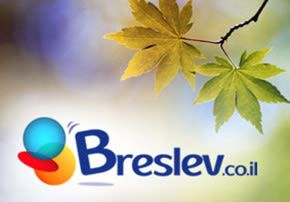
Growing With Our Children
When children honor their parents, Hashem considers Himself as residing with the parents and as having received honor from the children...

Well-known educator and author of Precious Jewels (published by www.Artscroll.com), Rebbetzin Zelda Rosenthal, has kindly agreed to share her insights on raising children with Breslev Israel’s readers.
Rather than offer solutions to existing problems, I would like to discuss a few basic concepts that are the foundations of running a healthy Jewish home. Once we understand these concepts, we can work on incorporating them into how we deal with the world and share them with our children.
A true Jewish home is based on hakarat hatov, gratitude
My father, Harav Shmuel Scheinberg, z”tzl wrote:
Our rabbis say, ‘Derech eretz (respect) is a prerequisite to acquiring Torah.’ Many good middot – characteristics – can be characterized as derech eretz. I would like to focus on one of these, hakarat hatov, expressing gratitude. We have a special obligation to acknowledge and express gratitude for all the good that is done for us. Today, however, there is a tendency to neglect this mitzvah. Therefore, I will try to explain the scope of hakarat hatov, to what extent we must express our gratitude.
Sefer HaChinuch’s explanation of the mitzvah of kibud av v’eim, honoring one’s parents, best describes the extent of hakarat hatov. Common sense dictates that we are obligated to honor our parents. They do so much for us, it is only proper to recognize their goodness and reciprocate by treating them with respect.
Sefer HaChinuch (Mitzvah 33), gives an even deeper explanation. Writes the Chinuch: The root of the mitzvah of honoring our parents is the concept that it is only right for a person to acknowledge and be kind to the person who was good to him. We should not act as scoundrels, by distancing ourselves and being ungrateful. This is a bad character trait and is displeasing to both Hashem and mankind. We should remember that we owe our very existence to our parents. They brought us into the world and throughout our early years exerted themselves for our benefit. Therefore, it is proper for us to honor our parents and benefit them in anyway possible.
Continues the Chinuch: Through instilling this trait within ourselves and making it part of our character, we can elevate ourselves and recognize Hashem’s goodness, since He is the primary cause of our existence. We will realize that Hashem brought us into this world, provides us with all our needs… For if Hashem had not endowed us with this nefesh (spirit) we would be like a horse or a mule, without intelligence. Therefore let a person think carefully how very proper it is to be meticulous in serving Hashem.
We see from the Chinuch that serving Hashem and doing His Will is rooted in hakarat hatov, the obligation to express our gratitude. The very fact that we are living and able to function means that we are obligated to do Hashem’s Will.
A well-known medrash explains to what extent we are obligated to express hakarat hatov. When Hashem told Moshe (Moses) to redeem the Jewish People from Egypt, Moshe spent seven days trying to avoid fulfilling this assignment. After Moshe accepted the mission, the Torah continues, “Moshe went and returned to Yeter, his father-in-law, and said to him, ‘Let me go back to my brothers who are in Egypt and see if they are still alive'” (Shemot 4:18).
Before fulfilling Hashem’s command to redeem the Jewish People, Moshe asked permission from his father-in-law, Yeter-Yitro! The medrash (Shemot Raba 4:2) explains that after Hashem informed Moshe that He was sending him to Pharaoh to redeem the Jewish People, Moshe responded, “I cannot agree (immediately) because Yitro opened his house to me. I am like a son to him.”
Moshe told Hashem that he could not go to Egypt before requesting his father-in-law’s permission. Moshe said these words with the full realization that if he did not accept this Divinely ordained mission, the Jewish People’s redemption would be delayed, as it says in the medrash, “Rebbi Elazar said, ‘If you do not redeem them, no one else will.'”
Despite the consequences, Moshe understood that he was obligated to express hakarat hatov to Yitro for having taken him into his house and providing for him in a time of need.
The medrash continues with another example of hakarat hatov. When the prophet, Eliyahu (Elijah) was boarding at the home of the widow Tzorfis, Tzorfis’ son died. Eliyahu pleaded before Hashem, “How can I live, knowing that the son should die after the woman did so much chessed (kindness) for me?” Hashem heeded Eliyahu and returned the soul to the child. Eliyahu literally revived the dead child. There is a similar incident with Elisha who revived the dead soul of his host’s son.
* * *
When we understand the importance of expressing our gratitude – toward Hashem, toward our parents, toward our teachers and – yes –toward the cashier at our local grocery store and the local mailman – we can teach our children the importance of respecting us. In Precious Jewels I wrote that through respecting parents, children learn to respect Hashem, as the Gemara states: When children honor their parents, Hashem considers Himself as residing with the parents and as having received honor from the children.
How do we teach our children to honor and respect us? First of all, by expecting them to honor and respect us! When our little two-year-old throws his Lego all over the living room floor (and he’s not overly cranky or overtired) we can say, “Let’s help Mommy clean up,” and compliment him profusely for every piece of Lego that he hands us, saying things like, “What a big boy you are! You got a big mitzvah today – the mitzvah of kibud av v’eim, honoring your parents.” We can, and should, expect our older children to serve us. [In our family, the children always served the Shabbat meals. When, for example, my daughter would serve my husband a cup of tea, I would say something like, “Thank you for serving Tattie his tea,” and vice-versa. Editor]
One of my father’s former students asked him, “What should be the first act that my son does when he becomes Bar Mitzvah?” My father replied, “Sit down with your wife at the table and let your son serve you both!”
The Torah commands us to respect all our elders, as it is written, “Remember the days of old, understand the years of generation after generation. Ask your father and he will relate it to you, your elders and they will tell you” (Devarim 32:7).
The great Rosh Yeshiva, Rabbi Yaakov Kamenetzky ztz”l, was traveling from his home in New York to Israel with his grandson. A well-known scientist on the same flight was so amazed at the respect and honor that Rabbi Kamenetzky’s grandson displayed towards his grandfather that he said to Rabbi Kamenetzky, “I am amazed at how your grandson takes care of you! In our homes, the children are constantly demanding, and the parents are trying to fulfill their children’s endless demands.”
Rabbi Kamenetzky replied, “You believe that man evolved from the monkey. So the previous generations are closer to the monkey than the younger generation. We, however, believe that the generation that received the Torah on Mount Sinai was the greatest generation ever. Each generation is farther removed from that glorious past, and the previous generation is a link to our illustrious heritage. So it’s only natural that the children will respect the older generation.”
The Torah also teaches us to respect all our elders, both Jew and Gentile, because of the wisdom they have gained over the years. Through respecting our elders, and asking them for their advice, we will gain from their life experience, and our lives will be immensely enriched as a result.
What is another way to instill our children with the desire to honor their parents? Through telling them stories!
When I was around ten years old, I accompanied my father on Shabbat afternoon to visit my grandfather in the hospital and met an acquaintance of my father. He told us that he devotes his Shabbat afternoon to visiting the patients. When asked why he goes every Shabbat, he explained, “When I go up to Heaven, after one hundred and twenty years, I want to say I tried to do one mitzvah to the best of my ability.”
That’s when I decided that I was going to do the mitzvah of kibbud av v’eim to the best of my ability! I became a model daughter. My parents were working so hard to raise our large family, and I wanted to do my share. After the Shabbat meal, I would set the table for the next meal. Whenever possible, I helped my mother feed my younger siblings.
There were five pre-school-aged children at home. Each morning, my mother would mix together five slices of bread, five soft-boiled eggs, a little bit of wheat germ, and salt. I would spoon-feed each child, and while the last one was swallowing, I would go back to the first one to give him another spoonful. Before my sister and I left for school, we managed to dress and feed all five children!
My friends would go swimming on Friday afternoons. When I asked my mother if I could join them, she replied, “You are not rewarded in the Next World for going swimming on erev Shabbat, but you are rewarded for helping your mother prepare for Shabbat.” These words were said with such love and respect that I felt that I was receiving much more than what I was giving up by not going to the pool.
I have fond memories of phoning my grandparents on Friday afternoon to wish them a “gut Shabbos,” and of preparing food for my father to bring to them on Friday morning.
In Conclusion
How do we teach our children to honor and respect their parents?
-
Through realizing the importance of hakarat hatov and expressing our own hakarat hatov to the people who have helped us.
-
Through expecting our children to respect us.
-
Through giving our children opportunities to express their respect and showing appreciation.
-
Through pointing out to our children that it is a mitzvah for them to honor their parent.
-
Through telling our children stories about how other Jews honored their parents.
When my children were young, I taught them that whenever they do a mitzvah, Hashem is adding another brick to the future Beit Hamikdash and that when the Beit Hamikdash will be complete, Hashem will present it to this world.
With Hashem’s help, may we merit to raise children who will add the final bricks that will complete the Third Beit Hamikdash.



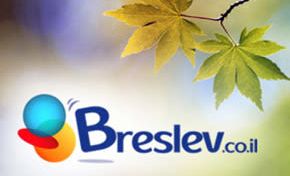

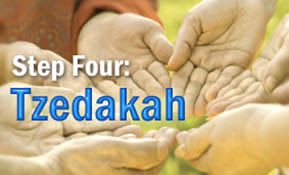

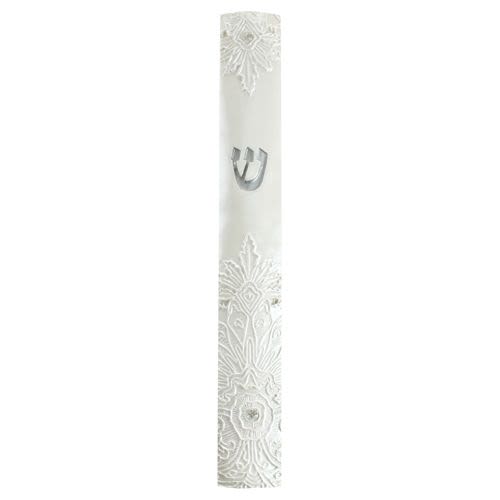
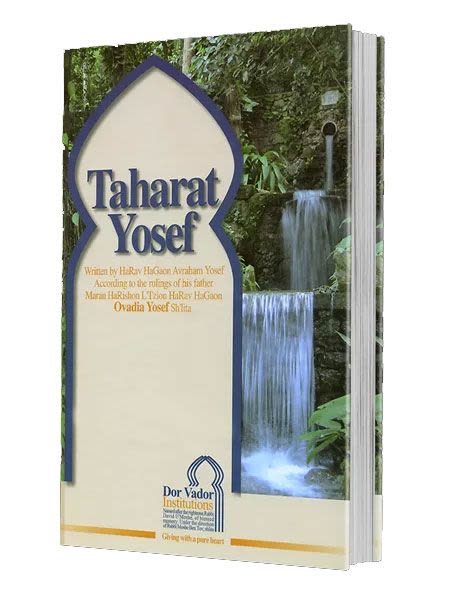



Tell us what you think!
Thank you for your comment!
It will be published after approval by the Editor.